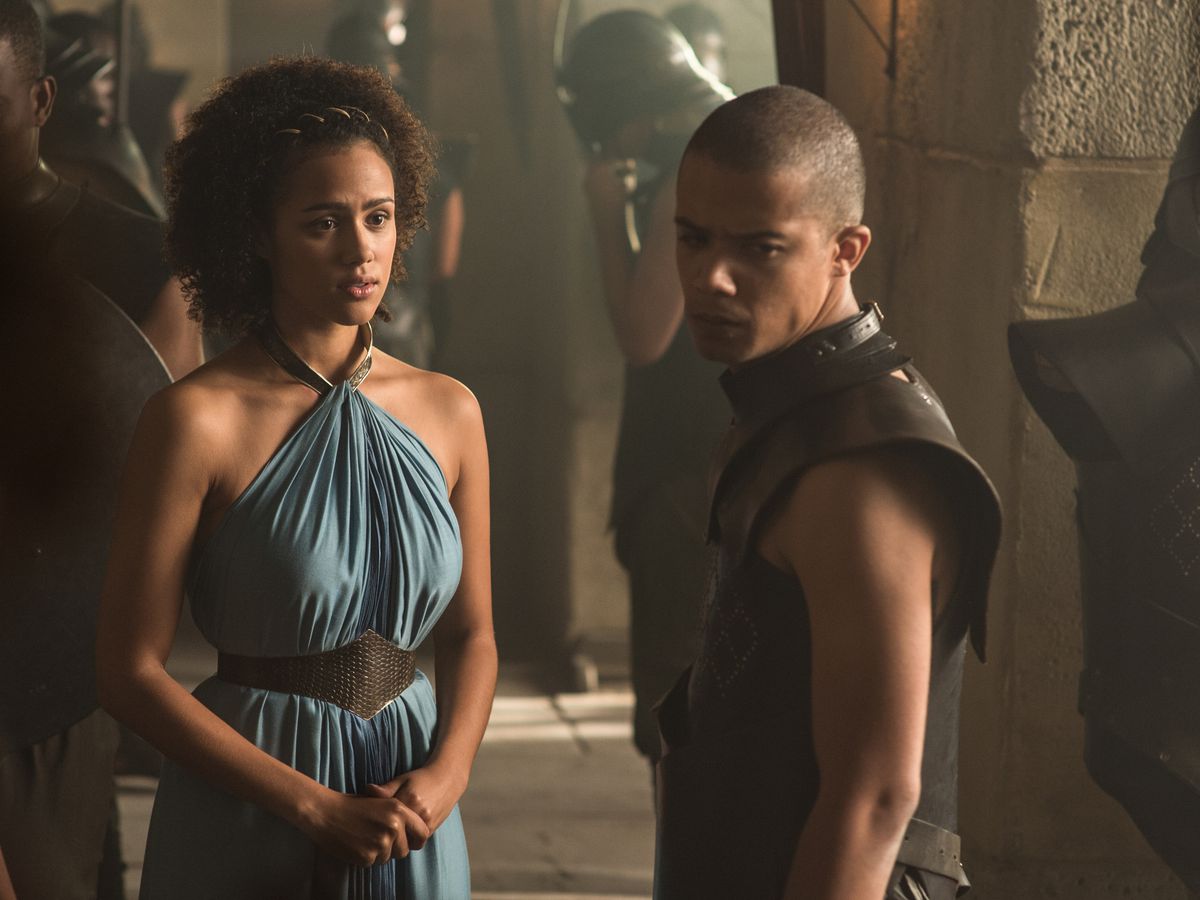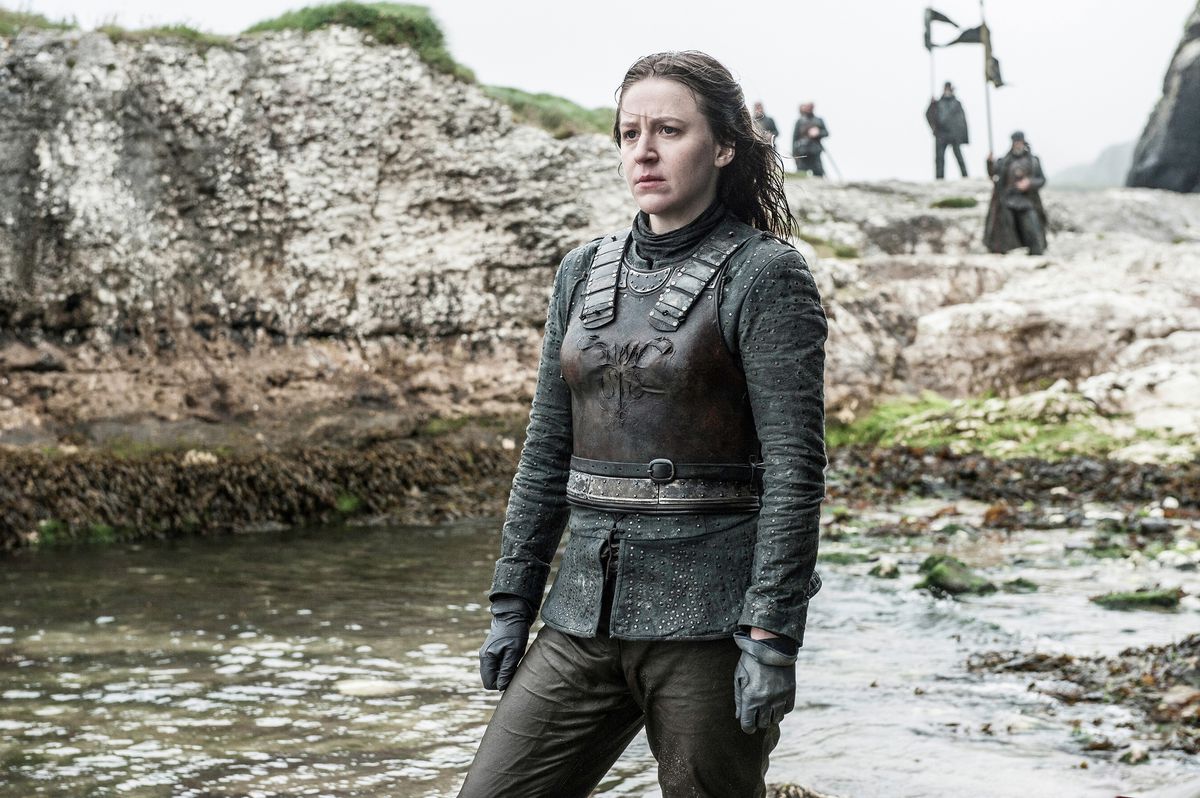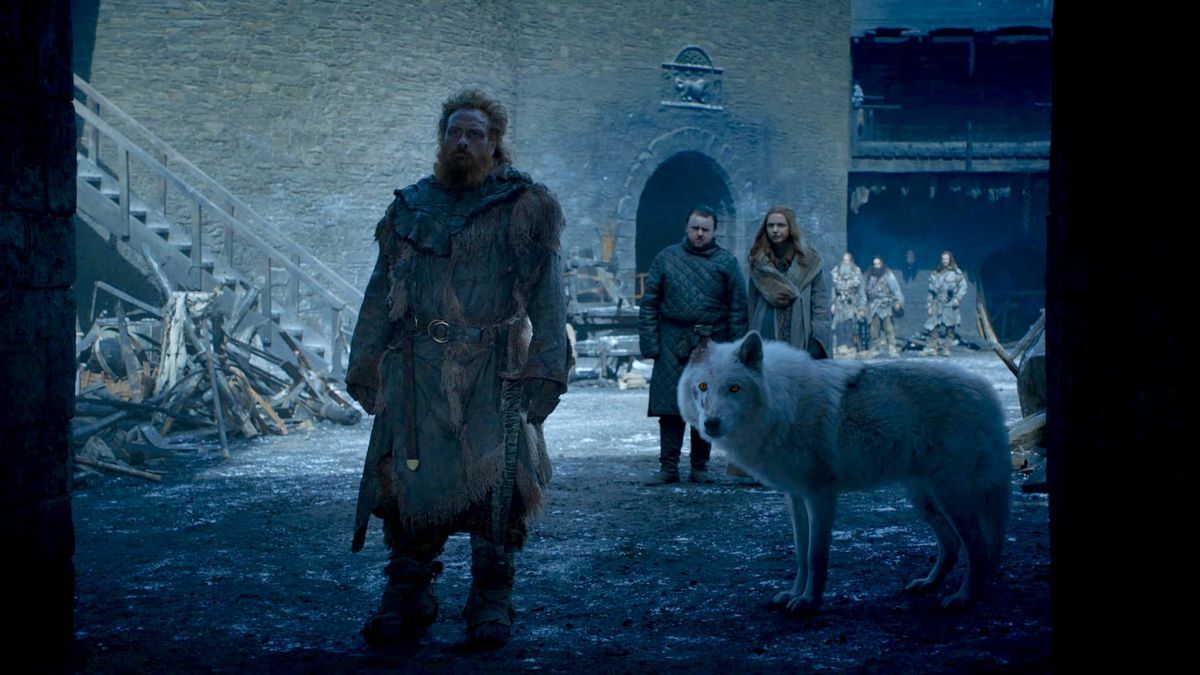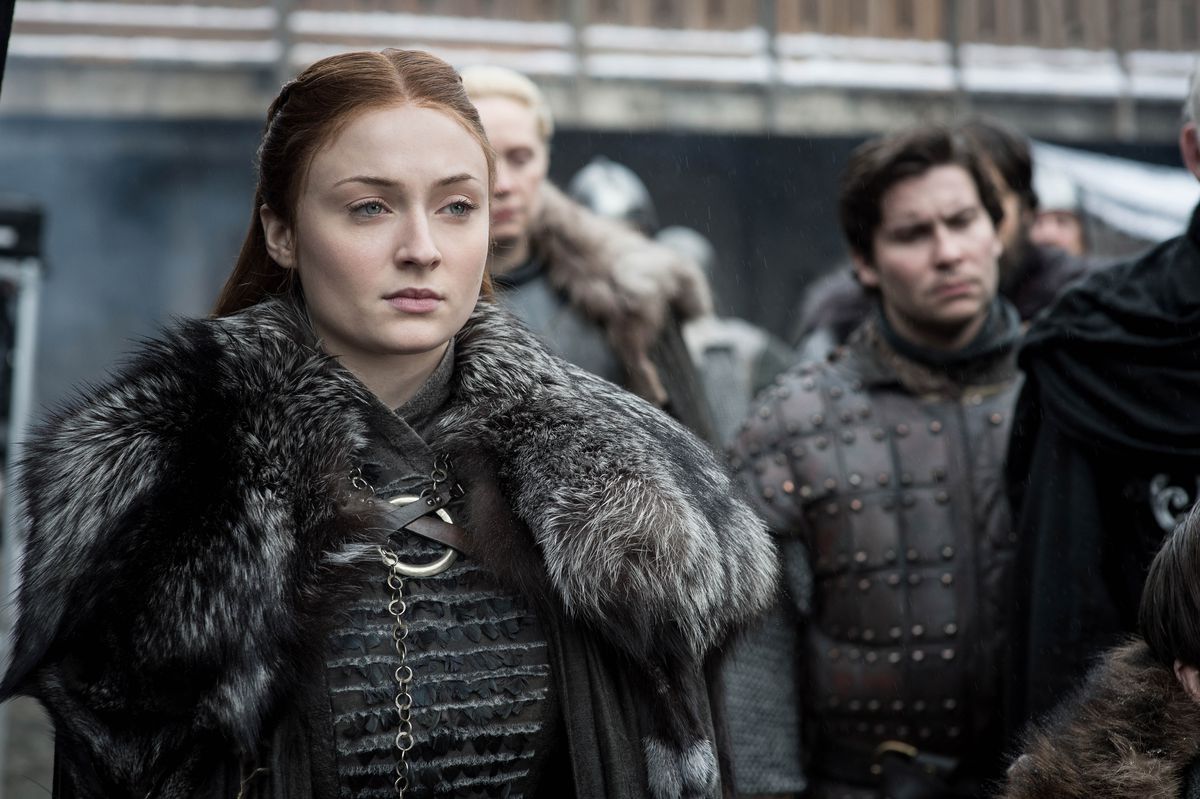Spoilers ahead for Game of Thrones season 8, episode 4, “The Last of the Starks.”
One of the bigger complaints levied at the past few seasons of Game of Thrones is that time and space have stopped meaning anything to the characters. The show used to spend multi-episode runs moving characters around the breadth of the Seven Kingdoms, but in season 7, the showrunners started accelerating the action by having Euron’s fleet magically teleport from one Westeros coast to another in no time at all or having a message make its way from far north of the Wall to Daenerys in time for her to swoop in and save her stranded allies from the Night King.
Season 8 continues to have a problem with ignoring time, space, and some significant plot movement. Despite the longer episode run times in season 8, Game of Thrones has regularly felt crowded and clipped in a way that doesn’t suggest urgent action, so much as corner-cutting. The latest episode, “The Last of the Starks,” is particularly bad about skimming across events in a way that confuses the action. In some cases, even a couple of extra shots or a fill-in line or two would have cleared up what seems like mysteriously sloppy plotting. Other omissions are more complicated and speak more clearly to the things that do and don’t interest showrunners David Benioff and D.B. Weiss. Here’s a rundown on important things that were apparently left offscreen in “The Last of the Starks.”

Image: HBO
Everything about Missandei’s capture
The capture and execution of Daenerys’ adviser and translator Missandei was clearly meant to be a heartstring-tugging moment. It’s supposed to be a personal blow against Daenerys, who’s struggling to be patient and listen to her allies, instead of charging into battle against Cersei. It’s also the tragic end of Grey Worm’s voyage of romantic self-discovery as an independent man instead of a eunuch slave and tool of the powerful.
So why does it feel so empty? Maybe because it makes no sense that Euron would target her for capture, instead of Grey Worm, the leader of Daenerys’ Unsullied army, or Tyrion, Cersei’s hated brother. How does Euron even know who she is, or that she’s worthy of capture? Missandei was at the summit between Cersei and Daenerys’ allies to discuss the undead problem, but so were a lot of people. Missandei was never introduced, and Euron was seemingly too busy throwing his weight around and bullying Theon to notice her.
The most plausible explanation is that while the remnants of the transport fleet were limping away, Euron’s fleet happened across the skiff Grey Worm mentioned, the escape ship Missandei was boarding. Presumably, he recognized her from the summit and captured her for Cersei. Maybe Cersei has spymasters along the lines of Varys or Littlefinger who could identify Missandei as important to Daenerys.
But none of that explains why Euron’s fleet didn’t run down the survivors of the attack, killing high-profile targets like Tyrion and wiping out the Unsullied survivors as they were swimming for safety. As usual, the timeline is frustratingly muddy. The way the sequence is shot, it looks like Tyrion, Grey Worm, and the soldiers just swim ashore and walk to their latest diplomatic date later that afternoon, as if nothing happened, while Euron magically teleports Missandei back to King’s Landing.
It would have taken so little effort to fill in some of those details with a shot of Euron spotting Missandei’s skiff and a few throwaway lines about recognizing her. But even so, none of it explains why Cersei would make a huge deal out of Missandei’s execution since, in the end, she’s still just one foreign adviser who’s mostly taken a back seat for several seasons now. It’s as if Cersei knows the point of Missandei’s death was really to drum up romantic drama, and that it’s much more significant than it looks to anyone actually present besides Daenerys and Grey Worm.

Image: HBO
The retaking of the Iron Islands
As writers and showrunners, Benioff and Weiss have made it pretty clear that they aren’t particularly interested in Iron Islands drama, which has made Euron’s teleportation problem worse. They don’t care about how he interacts with his people or what he’s like on his own, so there are no excuses for connective scenes that might establish where he is or how much time has passed since his last attack.
And Benioff and Weiss have been similarly uninterested in Yara Greyjoy’s saga: she was captured, she disappeared from the show until Theon (who the showrunners do care about, a lot) showed up to rescue her, and her story since then has consisted of a few offhanded lines. Theon tells Daenerys that Yara is off to reclaim the Iron Islands. In this episode, we learn she succeeded. How, given her limited resources and most of her people’s proven disinterest in her as a leader? Is she meant to be an asset now? The writers absolutely don’t care, which is frustrating since Yara is one of the show’s few female characters who isn’t being systematically villainized or weakened.

Image: HBO
Any interaction between Jon and Ghost
What’s going on with Jon and his direwolf Ghost? First, Ghost charges into battle without Jon during the Battle of Winterfell, and the showrunners don’t bother to show how he survived his suicide run. Then, Jon offhandedly tells Tormund to take Ghost with him when he returns north of the Wall. Jon and Ghost haven’t had much of a relationship throughout the series — likely because the direwolves, such a symbolic and heavily explored element in George R.R. Martin’s books, are too expensive and difficult to manage regularly on the show. But handing the symbol of his house and his relationship to his family off to another man without even saying goodbye is such a strange gesture.
me: Jon Snow must sit on The Iron Throne because he’s the most thoughtful and caring person in the Seven Kingdoms
[Jon doesn’t pet Ghost when he gives him away]
me: Jon is no better than Cersei— DL (@davelozo) May 6, 2019
Rhaegal’s corpse
In this week’s behind-the-scenes analysis of Game of Thrones, the showrunners do seem to confirm Rhaegal’s death at Euron’s hands. But it’s hard to believe that from the way it’s shot, with Rhaegal dropping into the ocean and abruptly disappearing, much like Jaime did during the loot train attack in season 7. Jaime somehow safely emerged from the water, miles away from the fight, but it sounds like Rhaegal wasn’t so lucky. It’s just that usually on Game of Thrones, you can’t count someone out until you see the corpse. Fake-out deaths are a major part of the book series, and they’ve carried over into the show. So with the dragon just disappearing underwater, it’s hard to believe he’s dead.
That could just be another artifact of the show’s special effects budget: maybe the dragon’s bloody wounding was meant to be clearly indicative that he wouldn’t have survived. His disappearance just looks suspicious — especially with Euron enthusiastically confirming that no, he didn’t see a body, but the dragon definitely went into the ocean, and therefore is certainly dead, no question whatsoever. Again, all this scene would have needed is a clear line from someone about seeing or recovering Rhaegal’s body.

Photo by Helen Sloan / HBO
Sansa’s downtime
Compared to the other things on this list, this one’s pretty minor, but it’s also extremely telling about what’s going on with the storytelling on Game of Thrones over the past two seasons. In this episode, Jon Snow makes the probably pretty poor decision to tell his sisters Sansa and Arya that he’s the secret heir to the Iron Throne. Sansa swears not to tell anyone else, and she honors that promise by immediately turning around and telling Tyrion, knowing the word will spread.
According to the showrunners, this was a carefully thought-through decision that shows how much Sansa has learned from Littlefinger, and what a master manipulator she’s become. But we don’t see any of the debate, internal or external, on-screen. What we see is a pretty quick cut from “I swear I’ll never tell anyone” to her telling someone, specifically to forward an agenda. It makes her look faithless, shallow, and impulsive when it’s supposed to make her look wise, devious, and in control.
The framing of the scene doesn’t help. She doesn’t call Tyrion in to tell him; she appears to do it on the spur of the moment. But the real problem is that, as usual, we have no idea how much time is passing on the show. Did she wait a day before spilling the beans? A week? An hour? It’s such a minor question, but it says so much about who she’s meant to be, and it could have so easily been fixed. (“Tyrion, I learned something yesterday…”) Why, at this point, do Benioff and Weiss still think time isn’t remotely important in Westeros?




















![[Book Review] The Blade Itself (The First Law Trilogy) by Joe Abercrombie](https://bendthekneegot.com/wp-content/uploads/2018/01/1516047103_maxresdefault-218x150.jpg)

















